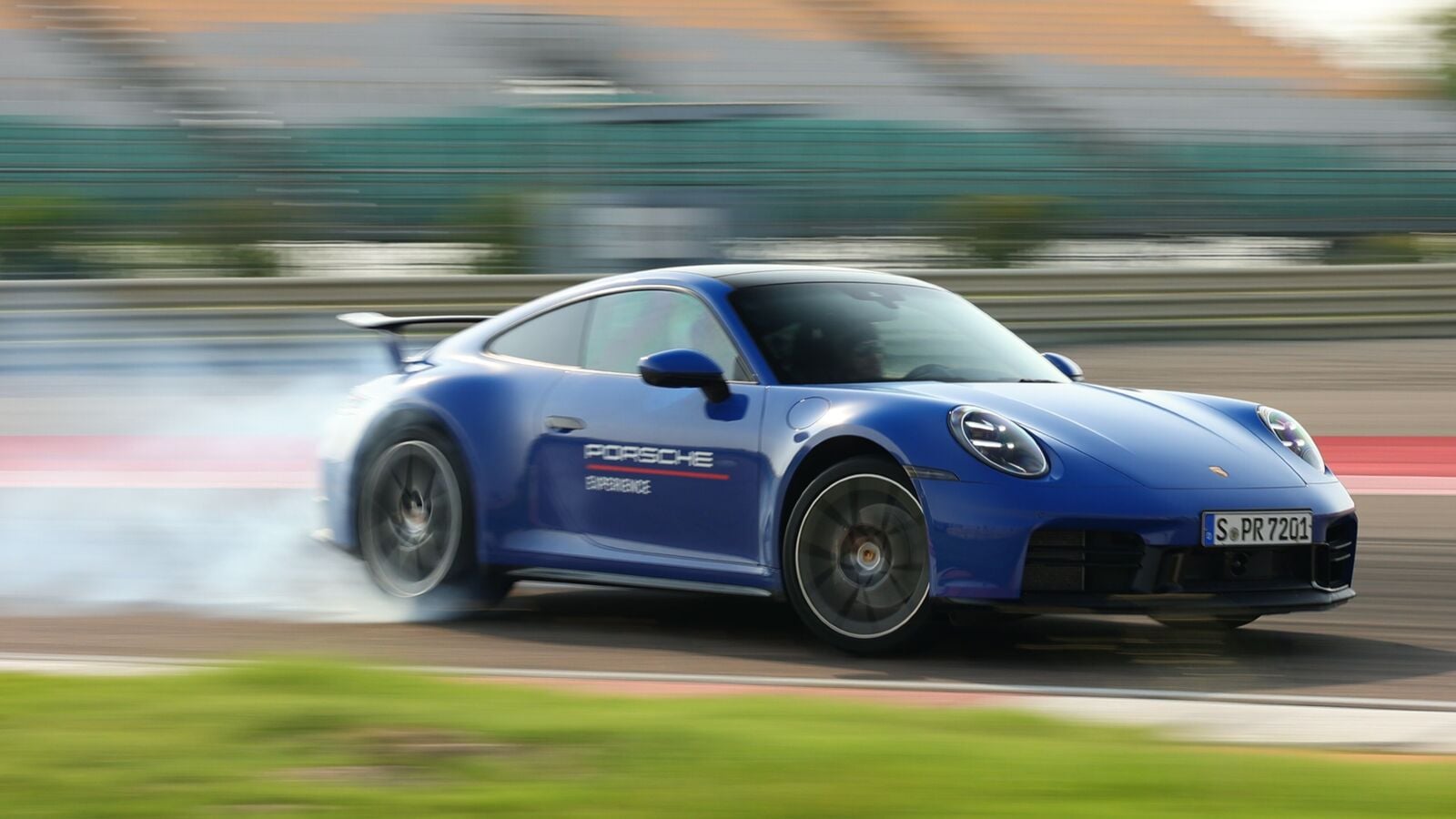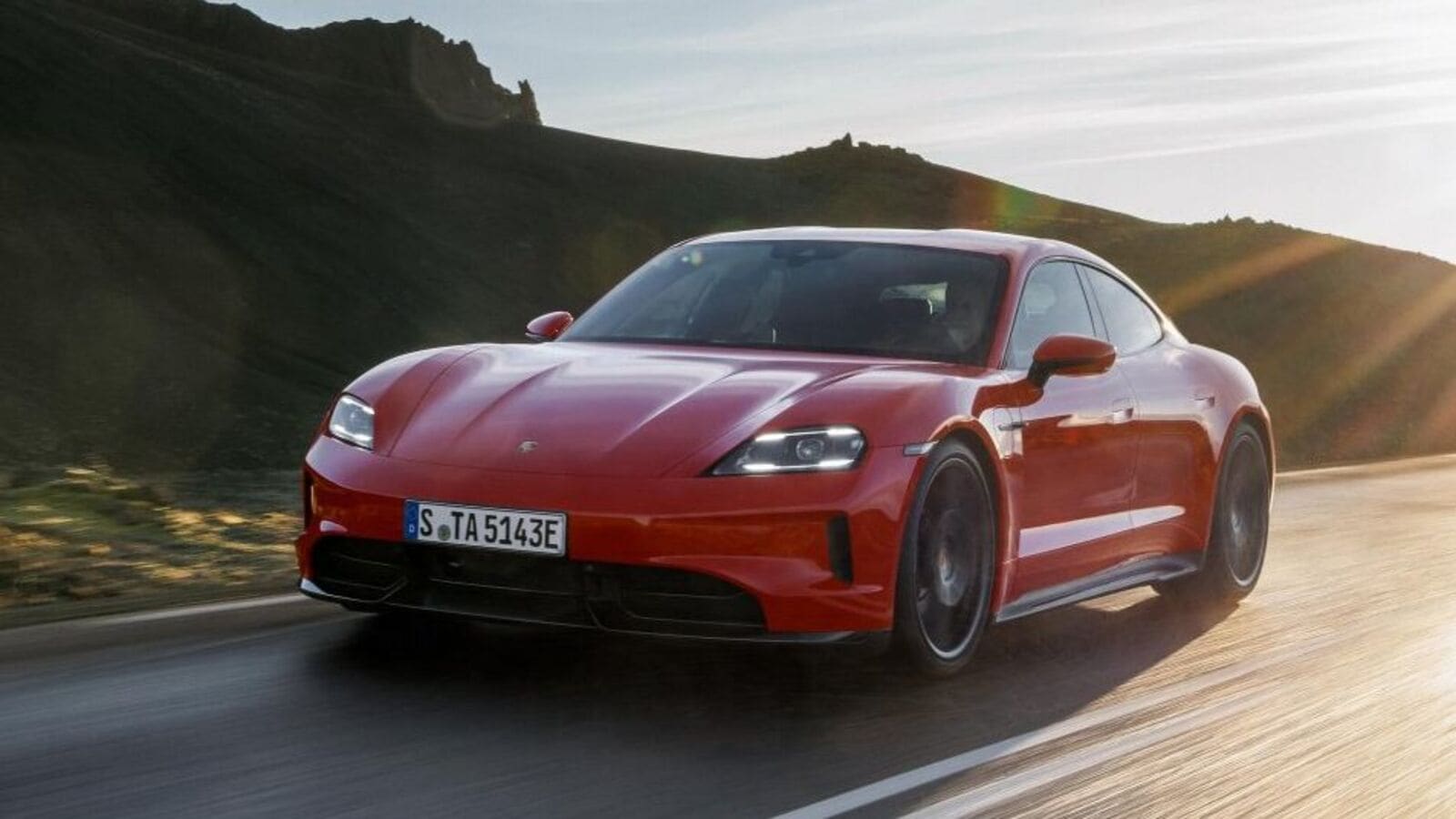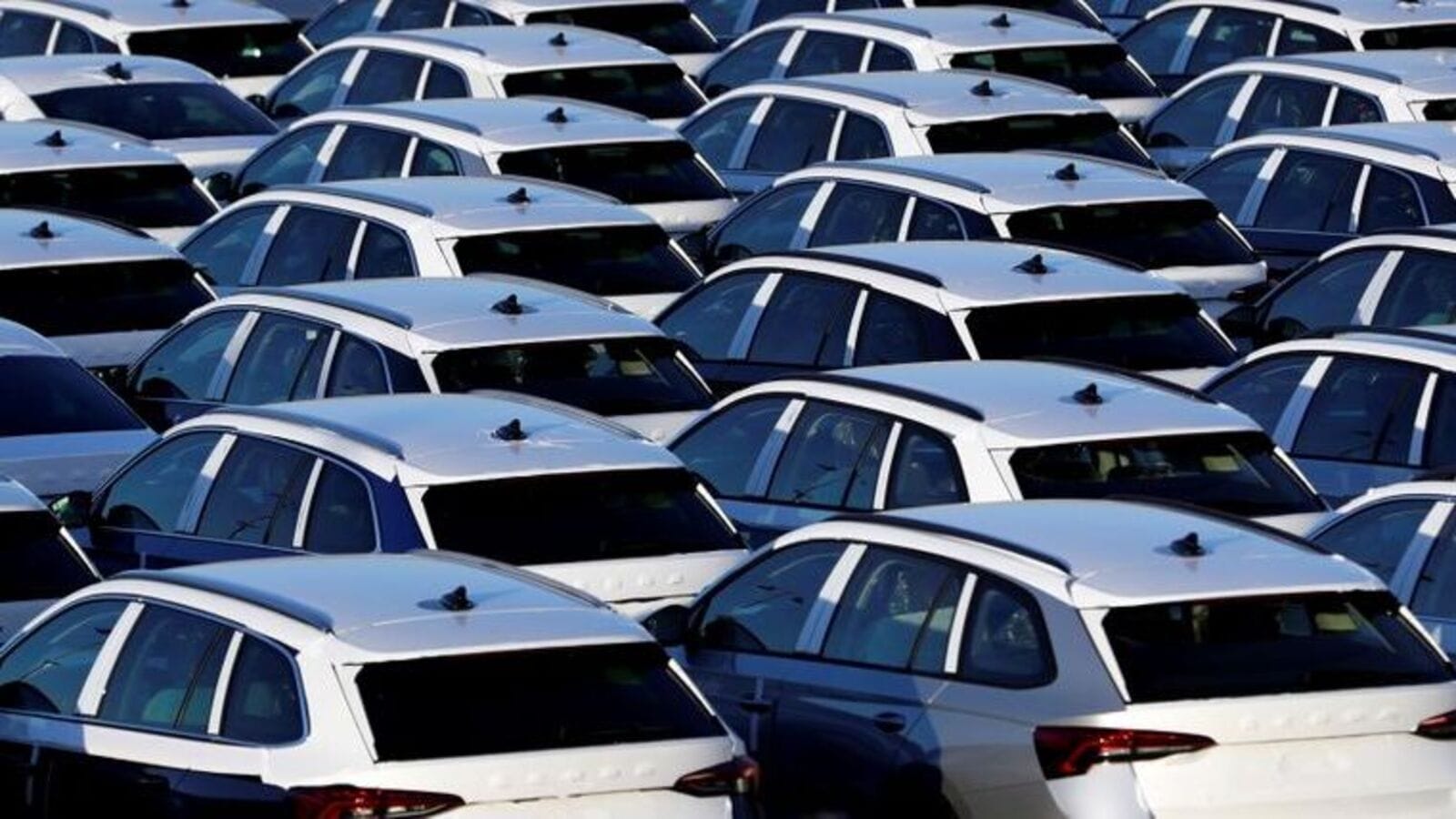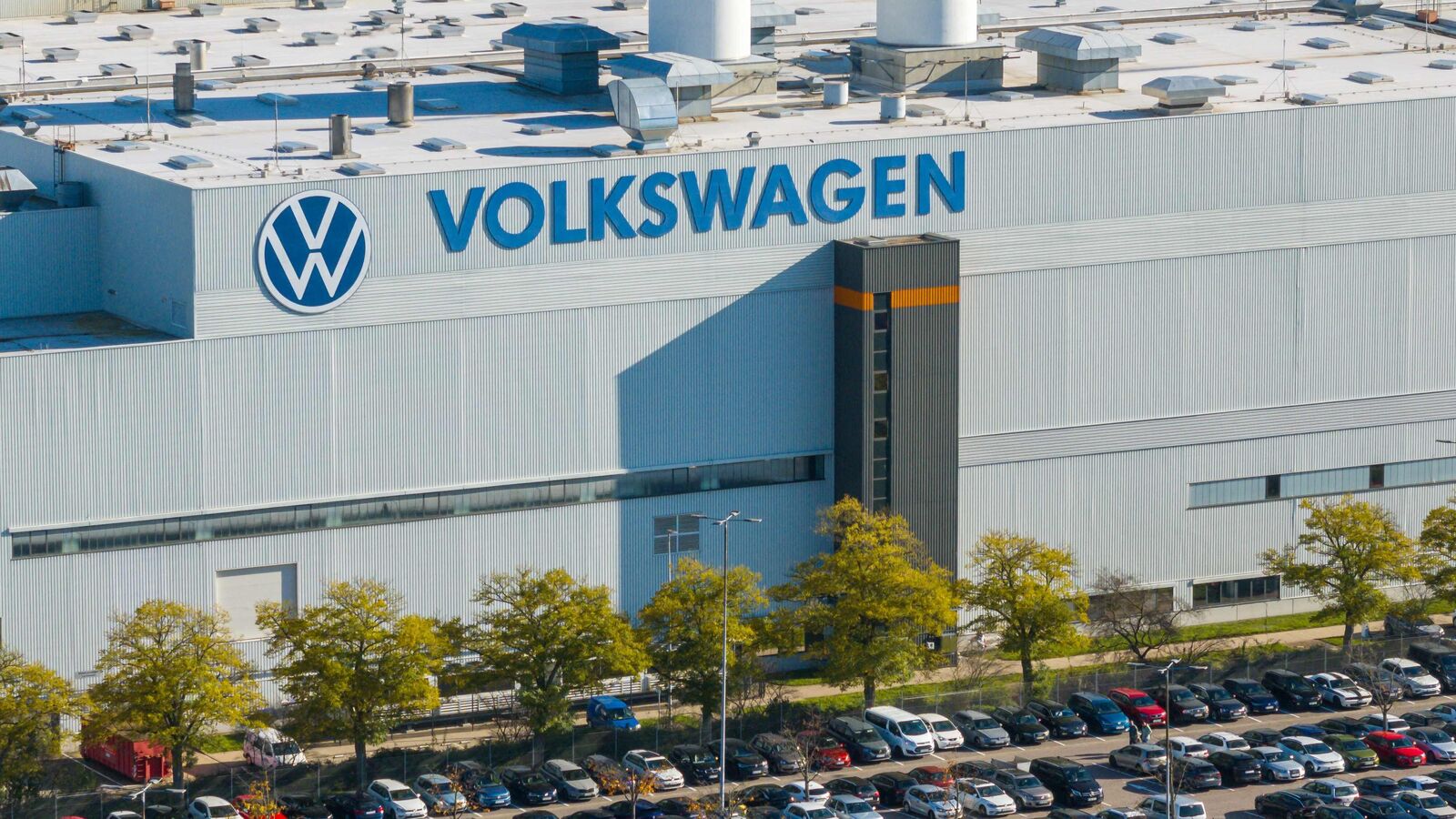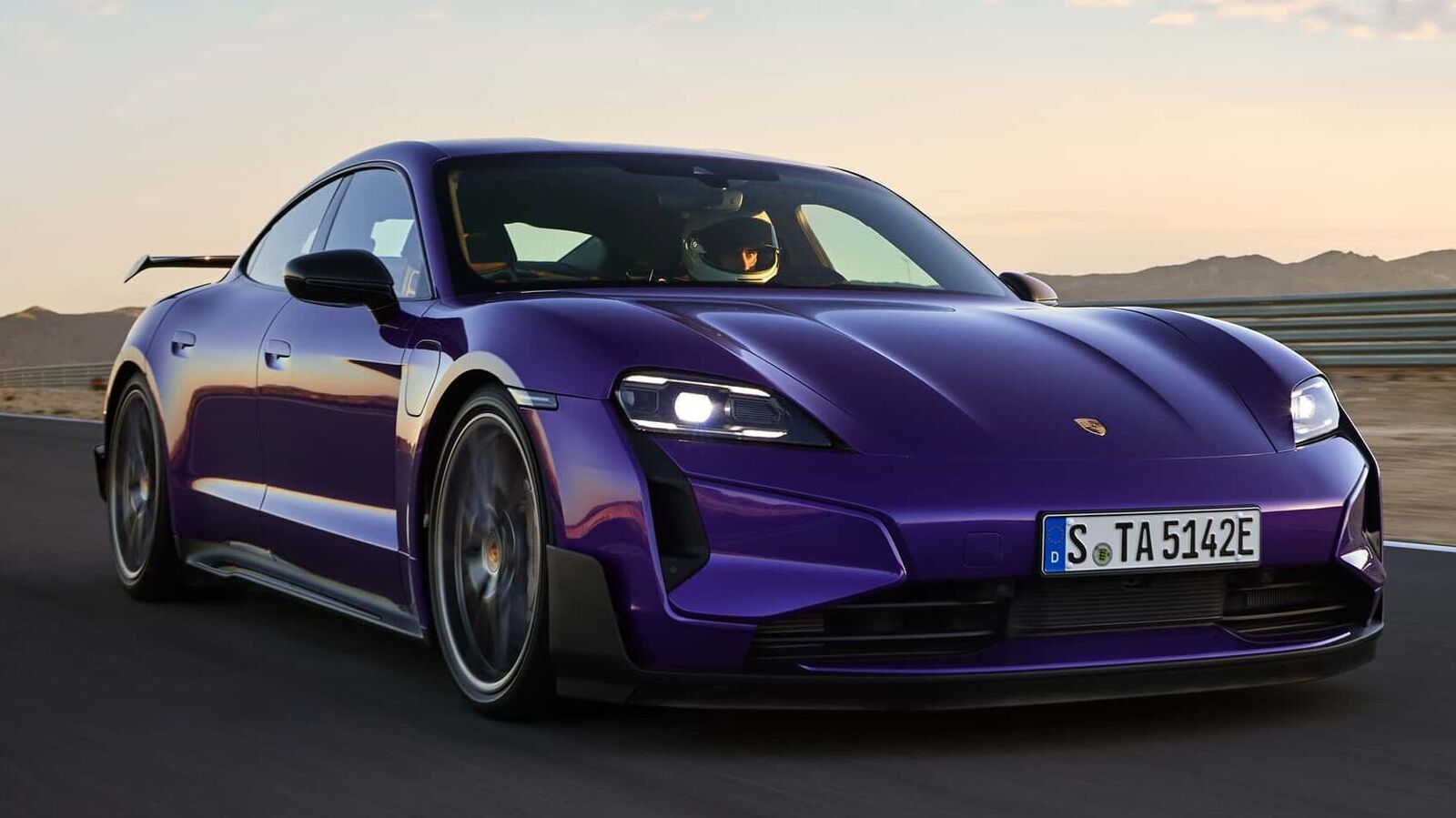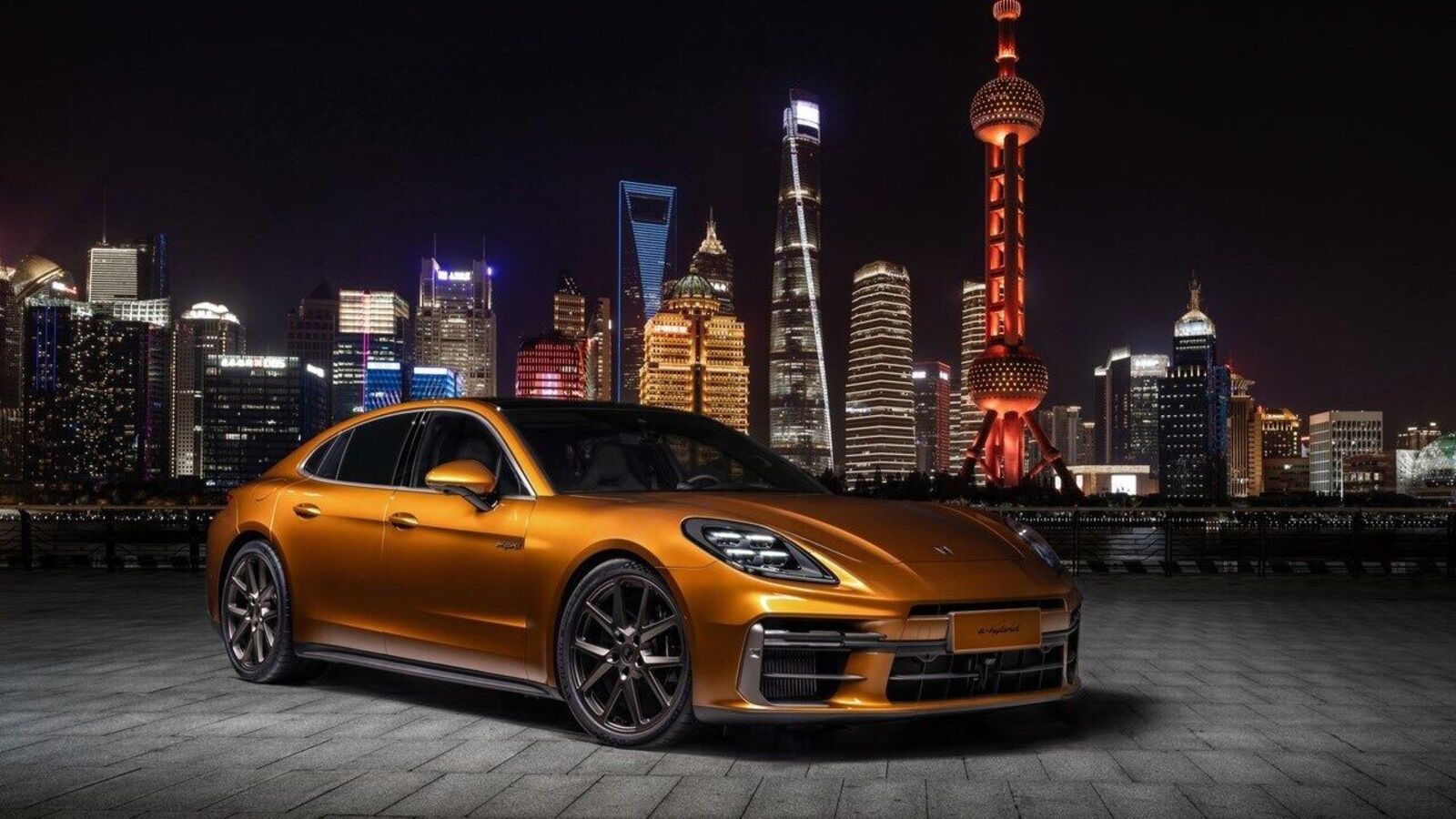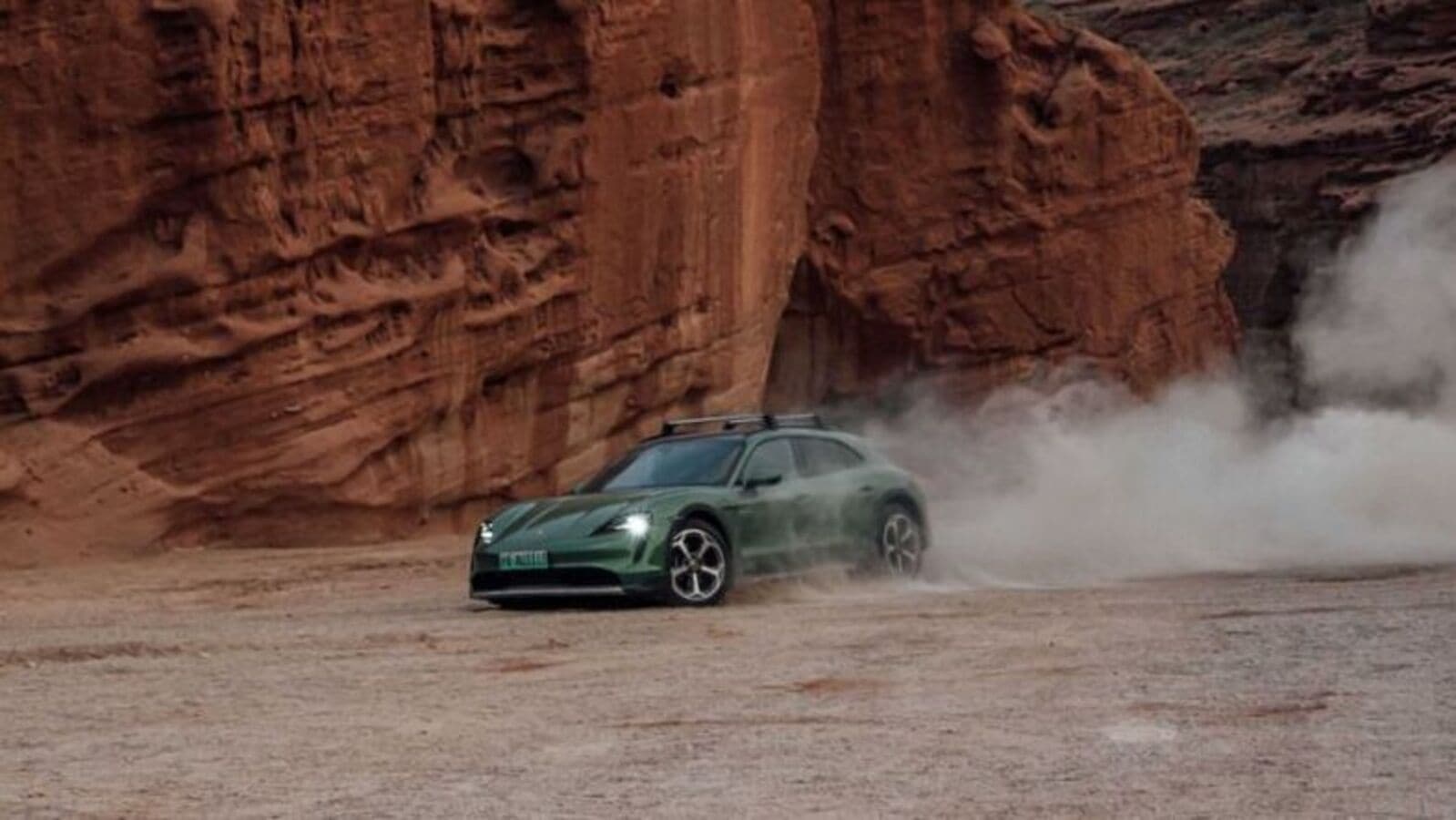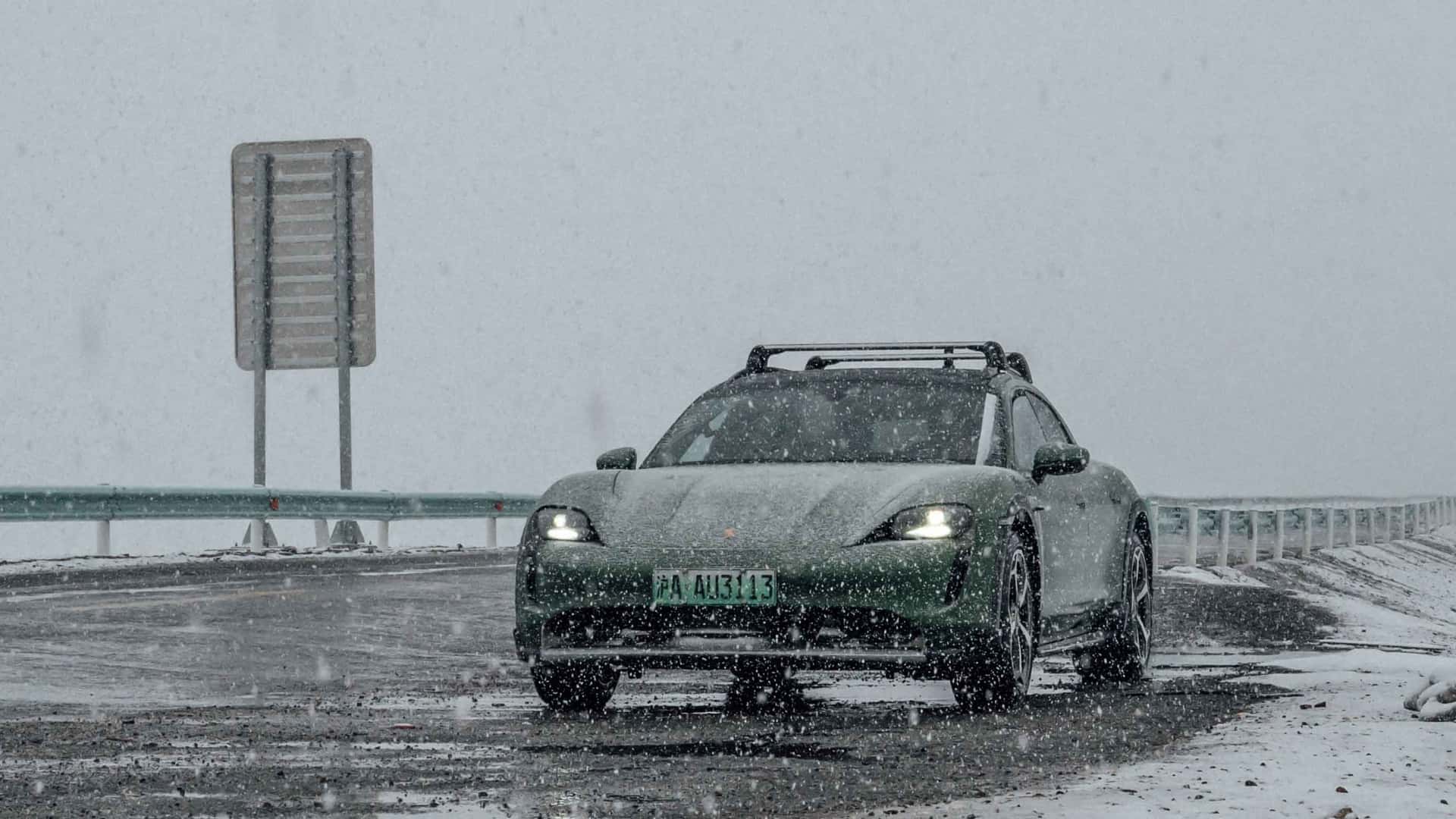Porsche World Road Show: What is this?
Think of it as a travel circus of sports cars from Stutgart, going to different countries with your cars and professional driving teams to the world, so that he can experience accurate engineering in its best form. The Porsche World Road Show arrived at the famous Buddha International Circuit (BIC) in India, rapidly established the platform for an ideal day of cars and a thrilling race track. The exclusive incident extends to the media for several days, as well as the owners and enthusiasts of the brand.
We reached a sea of Porsche in the Paddock region of BIC, which is coming forward, a precursor to it. Porsche 911, 911 GT3 RS, GT4 RS, McAn, Keyen and Tycan, the lineup was long and exciting. It was well waiting for more than 1,500 BHP, which was interesting in the cover of the left hand drive and right -hand drive.
Porsche 718 Spider RS: Slealum Sport
Later a quick breakfast and ride briefing, we have Rs 718 spider. Started the day in. Thank the roof, what was a scorching day, while the BIC was directly started/finished into a slalm course. Each of us tucked ourselves into the car one by one with a helmet to determine a lap time. We were given the practice interval with a instructor next to us, which explained how to determine the best time. With a quick understanding of layout and throttle reaction, it was time to bring 718 spider RS into life. The 493 bhp six-pot motor came into life with a royal thunder and as he collided with the accelerator pedal, flew properly.
We kept our steering movements tight and kept our throttle input alert because we attacked, or avoided them. The magnificent chassis on 718 Spider RS did the rest with his agility in full performance. Before we know this, both lapse were made. While we did not set the fastest lap time for the day, the first course was the perfect warm-up before a fully developed tour on the track.

Porsche Mcon Turbo: Launch Alert
Subsequently, it was a time to sample the sampling in a straight line. Porsche Mcon Turbo was our weapon for that. Nothing does not match the acceleration of an EV, especially when tuned by Porsche, and I will accept, we were not fully prepared for the coming time. Macon turbo is faster. Our instructor warned us, but nothing says that when you gasp for air, you are pinned to a better seat than your spirit. No thunder, no platforms and bangs, and not even a little vibration to warn you. All this is silent until you kill the accelerator.
We held the steering wheel and pinned the accelerator and accelerated the Macan Turbo at 0–100 kmph in 2.2 seconds. I believe, my courage seemed as they moved the places, only arranged again when I used to fill the stomach again on the brake. The faster the needle goes up stops with the same force. 100 percent will do this again.
Porsche 911 Carera GTS: Track Thunder
Now the time had come to highlight the big horses on the race track. It was like having a child in a candy store, in which a huge lineup of porsche was line in pit lane. We launched our drive at Porsche 911 Carera GTS, this is the right intermediate car if you want to experience 911 lineup. Not even vanilla, but not even track-centric. What you get is an ideal mix of sporty performance together with everyday purposes. It felt right at home on the track
We were rowed behind our instructor and became just the right machine to experience 5.12 km circuit in our first time. It took me a minute to get into the rhythm of the left hand drive car, but once I did, the laps were sharp and swept away. As we entered the C3 corner, it was time to pin the accelerator to experience 534 horsepower directly on the BIC back. Carrera GTS organized itself, which was made of minimum body rolls. Steering was responsible, the seat cocooned us well.

Cayman 718 GT4 RS: Attestinal Performance
While Carrera GTS was about all balance, Cayman 718 GT4 RS showed us what Porsche really is. The rear sings a rollcase, bucket seats and a six-cylinder engine up to 9,000 rpm. GT4 RS is raw, intestine and frightening, kills every sensory system in my body. The suspension is properly rigid. I can't help, but think about how it will handle broken public roads that offer our cities. but not today. Today, it is about experienceing your cleverness in all fast and attractively going.
When we felt that it was time to meet the last boss of 911, our luck ran out. A technical issue meant that the 911 GT3 was not ready for the RS track, and our group missed the opportunity to drive the car. GT3 rs with large wings will be in me in another day.
The Porsche team rolled out Stock 911 Carrera with Paint to Sample (PTS) Leeri, allowing the owners to adapt the car to their favorite paint plan. After the GTS and GT4 RS experienced so far, it felt vanilla in comparison. I now understand why every 911 owner wants to reduce his car to the final details. With so many adaptation options from colors to internal options, your 911 should be rightly felt who you are. Nevertheless, Stock 911 Carrera was a great reminder of all the options that you can sample above and above the car. While power delivery was excellent, there was a sign of body role in stock suspension, followed by more track-centric 911.

Porsche Tycan and McAcan Turbo: Electrification Prange
Now it was time to switch it to electrical propulsion, further on the test track with the electric performance cars of the Porsche. When I am for EVS, the inline six-cylinder engine has its own attraction and until this point, it was difficult to miss that magnificent-sounding engine. But Porsche EVS showed us what power is felt from 0 RPM. Macon EV with 630 bhp and 1,130 nm peak torque (with launch control) was a masterclass in large SUVs that was going fast. The massive weight is noticeable around the corners, but the electric SUV collides at the speed of triple-papers in no time.
If it was not sufficiently native, then it was time to go behind the wheel of Tycan Turbo. Taycan comes closer to sports cars from Porsche, with a low-slung body, accurate handling and a cabin that mixes the past and future well. This helped that Tiecan offered zero body rolls, although our adrenaline level was there to kick the life often.

Porsche Keyen: Off-road max
When you felt it could not be better than this, Porsche had a separate off-road track for us to sample the capabilities of Keyen. The team had made everything to the Axle Articulation Ramp, Step Inclins, Hill Ascent and Dissent Challenges, and Keyen easily covered everything. While the poster of 911 Porsche will be a child, Keyen has been a silence for the sale of the brand globally. It is no wonder that enthusiasts like this as much as the mall-hoping elite.

Porsche World Road Show: Final Countdown
As the sun came on a magnificent day, it was time to see whatever we had run. For a job that we like to do, some days are better and some feel more complete than the rest. It was the latter, and reminds why we do this in the first place. It is also a reminder that no matter that your favorite car brand, every enthusiast will have a soft corner for Porsche. 911 is not just another sports car; This is a holy grave. If it was the only car that I could keep in my garage, it would happen.
Look at the upcoming cars in India, the best SUV in India.
First published date: 21 August 2025, 13:27 pm IST

